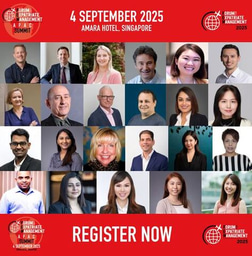Global Mobility: State of the Industry – Recap

Sponsored by HSBC, The Forum of Expatriate Management’s ‘State of the Industry’ webinar on February 3 was an insightful and practical discussion with experts from the UK, USA, Germany and Hong Kong. This included:
- Georgina Hawkes, Head of Global Mobility, HSBC
- Rina Montalvo, Global Mobility Director, News Corp
- Stephen Park, International Mobility Centre, APAC, Schneider Electric
- Anja Vahldiek, Director, Global Mobility Solutions, EY
Moderated by Claire Tennant-Scull, the Global Director of Content & Events at FEM, the conversation covered three key topics that HSBC has been following keenly
1. What are the lessons learned from 2020 and solutions used in the past year?
2020 was a gamechanger for workforces in general – not just mobility. The impact was particularly felt through the rapid adoption of remote working which offers an alternative to what would have previously been considered business-critical and experiential mobility.
The importance of agility also came to the forefront. As HSBC’s Georgina Hawkes explained, the pandemic forced Global Mobility teams to be more agile, react to the unexpected and be pragmatic in the face of dramatic and sudden changes like border closures. This uncertainly also extended to changing taxation regulations, and as Rina Montalvo at News Corp noted, Global Mobility teams now need to monitor the situation closely to ensure employees are able to work in different jurisdictions.
For Stephen Park at Schneider Electric, the key challenge was the sudden stop to relocations and having to get creative in how they moved people around while ensuring employee safety and security.
2. What are the particular challenges and opportunities in 2021?
In 2021, the experts identified taxation, immigration and policy as three key pillars that companies will need to address. In particular, setting clear policies around Work From Home and Work From Anywhere to mitigate compliance issues.
Work From Anywhere is an issue that raises particular questions around compliance. As Georgina explained, an employee may want to work in Bermuda or Bali but that may not be possible legally. There are also tax considerations (both income and corporate) as well as questions of data protection, insurance coverage and collaborating with colleagues across time zones.
Beyond compliance, Anja Vahldiek and EY are looking at ways of also moving jobs to people instead of people to jobs to help with employee personal development by looking beyond just the physical to the virtual cross border work opportunities.
The reality for many industries such as manufacturing is that virtual assignments don’t suit every role, so companies need to find workarounds and anticipate the return of business travel later in 2021. There are also compliance and legal issues that need addressing – although some governments are opening up visas to digital nomads, there isn’t widespread acceptance.
While the experts are cautiously optimistic around travel bubbles, rapid testing and airline vaccine passports, there is still so much uncertainty and unanswered questions.
3. What is the future of mobility itself in 2021 and how can corporations and service providers work better together?
What 2020 has shown is the value of specialist knowledge around Global Mobility and by extension the networks of local vendors to get on-the-ground information to answer some of the complex questions the pandemic has raised around mobility, compliance and working across borders.
The experts all agreed that Global Mobility is getting a lot more exposure and a better seat at the table - emerging from its niche category to become a real player on the global workforce stage. Questions around compliance are just the entry point to having a bigger impact in the future; opening the door to interesting new possibilities.
In terms of predictions for 2021, the experts were cautiously optimistic:
For Rina, the past year has been a positive gamechanger for conversations around mental health and we’ll continue to see companies implement it in their policies in 2021.
Georgina expressed the hope that international travel would get easier by the end of the year, both for mobility and so that families who have been separated by the pandemic can be reunited.
Stephen sees the potential for greater focus on clean energy and sustainability in company policies going forward and Anja is fairly positive with vaccine hopes and sees the coming year as an opportunity to use the increased exposure from 2020 as a springboard to rethink and restructure the Global Mobility industry for the better.
To watch the full webinar, you can find it here: https://www.forum-expat-management.com/videos/listen-on-demand-to-the-state-of-the-industry-webinar
To learn more about HSBC Global Mobility services, you can visit: https://internationalservices.hsbc.com/ebs/





Please sign in or register for FREE
Sign in OR sign up to become a registered The Forum for Expatriate Management website user
Subscribe here